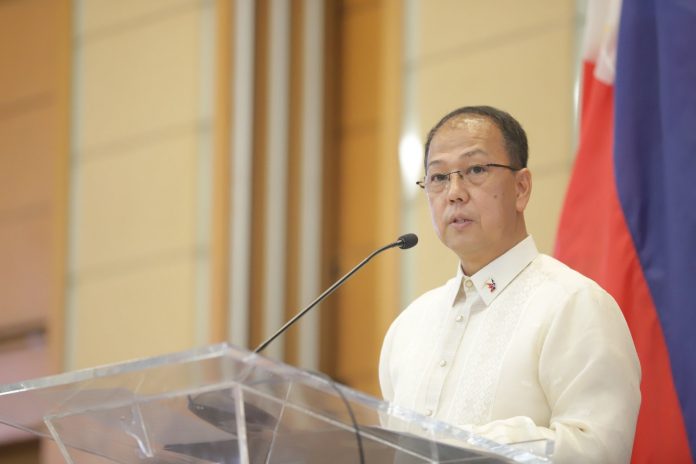
MANILA— Arrest warrants over the controversial Dengvaxia vaccine “changed everything” in negotiations for COVID-19 shots, an official said on Friday, as the Philippines remained unsure whether it could launch its coronavirus vaccination drive this month.
Vaccine makers are afraid to suffer the same fate as that of French pharmaceutical firm Sanofi Pasteur, which faced lawsuits over its Dengvaxia vaccine that allegedly caused severe dengue symptoms in some recipients.
Earlier this month, warrants of arrest were issued against 3 Sanofi executives over the controversy.
“Nag-change iyong situation, we have to understand. Iyong nangyari sa warrant of arrest sa Sanofi, it has great implications on our procurement, really,” said vaccine czar Carlito Galvez Jr.
(The situation changed… The warrant of arrest against Sanofi executives, it has great implications on our procurement, really.)
“It changed everything, iyong lahat ng agreement namin (all our agreements). It changed everything.”
The absence of an indemnification program has delayed delivery of 117,000 doses of Pfizer-BioNTech shots through the COVAX facility. The indemnification deal would protect vaccine makes from suit in case of adverse effects from the shots, said Galvez.
He said on Thursday the indemnity deal was not a requirement in initial talks with Pfizer.
“Para po sa kaalaman ng lahat, noong unang negotiation namin, hindi po iyan po hinihingi ng Pfizer—just now. Kaya medyo nabigla po kami,” he said in a separate briefing.
(For everyone’s information, in our initial negotiation, Pfizer did not ask for that—it did so just now. We were a bit surprised.)
The Philippines has signed an indemnity deal with the COVAX Facility, and still needs to sign a separate agreement with Pfizer, he said.
Asked if the initial Pfizer shots could still arrive in February, Galvez said, “I cannot say anything yet kasi ongoing pa iyong ating meeting with Pfizer lawyers, and sa ngayon, we are trying hard.”
(Our meeting Pfizer lawyers is ongoing and for now, we are trying hard.)
“We will work out talaga na mayroong darating this coming February,”
(We will work out so that some shots could arrive.)
The Philippines is “almost on the top of the priority not only for Pfizer, but also for AstraZeneca,” Galvez said, quoting the GAVI alliance that coordinates the COVAX Facility with the World Health Organization.
COVAX shipments were “delayed globally”, not just in the Philippines, because its top 3 contributors failed to meet their promised production, he said.
“There is still hope. Kaya lang, sinasabi nga nila na (but they say) we should be patient and our expectation should not be that much because they are still learning,” he said.
The Philippines has not yet received any of the 148 million COVID-19 shots that it hopes to give to around 70 million people this year.
Further delays in the vaccination drive could derail economic recovery after the country’s worst contraction on record last year, when it slumped 9.5 percent, the biggest decline in Southeast Asia. (ABS-CBN)



